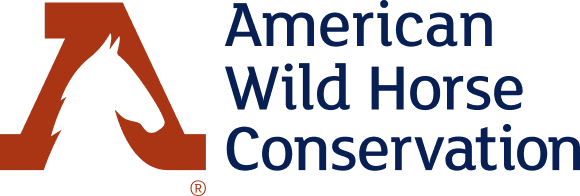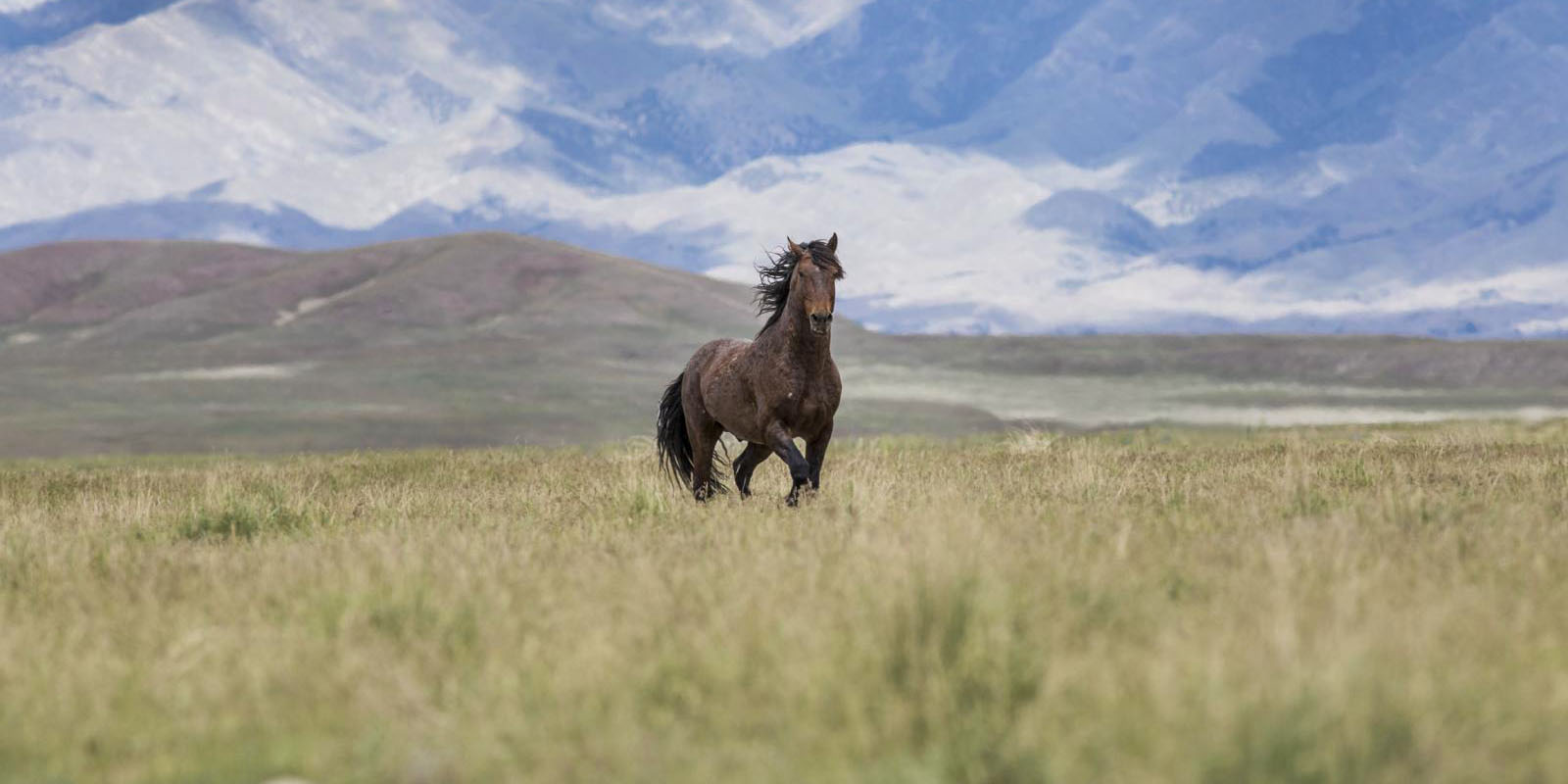Alturas, Calif. (Sept. 12, 2022) – Amid the start of California’s largest wild horse roundup – historically laden with problems – the nation’s leading wild horse protection organization, the American Wild Horse Campaign (AWHC) – is calling on the United States Forest Service (USFS) for greater transparency and the humane treatment of these treasured wild horses.
The USFS capture operation, beginning today under the helm of the US Department of Agriculture, aims to remove 500 federally-protected wild horses from the Devil’s Garden Plateau Wild Horse Territory in California’s Modoc National Forest. Since 2018, the USFS has captured approximately 2,443 wild horses from this territory.
The roundup is proceeding despite Congressional concerns about the welfare of California’s largest wild horse herd.
The roundup is conducted by Cattoor Livestock, a private livestock helicopter company contracted by both the USFS and the Bureau of Land Management despite documented instances of abuse against wild horses and burros during federal operations. Additionally, roundups via helicopter commonly pose an increased risk of horse injury, separation, and death. Disposition records from last year's roundup also raise concerns about the contracted holding facility’s ability to safely warehouse the captured animals.
AWHC has historically challenged USFS’ Devil’s Garden capture operations. The most serious animal welfare violations in which AWHC has called for greater oversight include:
- USFS’s Lack of a comprehensive and enforceable animal welfare program
- USFS’ apparent lack of policies and procedures to screen potential adopters
- USFS’ failure to freeze brand horses (making them indistinguishable from domestic horses/non-federally protected animals)
“AWHC has offered to implement—and pay for—a humane fertility control program for the Devil’s Garden mustangs but USFS continually rebuffs our offer. The agency is staying its outdated course – rejecting modern science and continuing with more roundups and removals. This is an ineffective management strategy that is expensive for American taxpayers and nothing short of cruel for the horses. More so, it flies in the face of Congressional calls for change, public opinion, and even California’s Attorney General.” said Mary Koncel, AWHC Program Specialist.
Solutions and alternatives to the mass roundups AWHC has presented to USFS in relation to the Devil’s Garden Wild Horse Territory include:
- Implement comprehensive animal welfare standards, thorough vetting of adopters, and a reversible immunocontraceptive fertility control vaccine program.
- Manage the remaining Devil’s Garden horses humanely in the wild via a comprehensive PZP fertility control program and reallocation of forage resources away from subsidized livestock to maintain the current wild horse population, save taxpayers money, and protect this unique California mustang herd.
- Implement range improvements such as the development of additional water sources and removal of fencing (to enhance the ability of the Devil’s Garden wild horses to utilize the entire Territory instead of forcing them to concentrate in certain areas).
- Develop a Comprehensive Animal Welfare Program that would define standards, training, and monitoring for conducting roundups and ensure humane transport, care, and handling of the animals who are removed and placed in the care of the USFS.
About the American Wild Horse Campaign
The American Wild Horse Campaign (AWHC) is the nation's leading wild horse protection organization, with more than 700,000 supporters and followers nationwide. AWHC is dedicated to preserving the American wild horse and burros in viable, free-roaming herds for generations to come, as part of our national heritage. In addition to advocating for the protection and preservation of America's wild herds, AWHC implements the largest wild horse fertility control program in the world through a partnership with the State of Nevada for wild horses that live in the Virginia Range near Reno.
###

